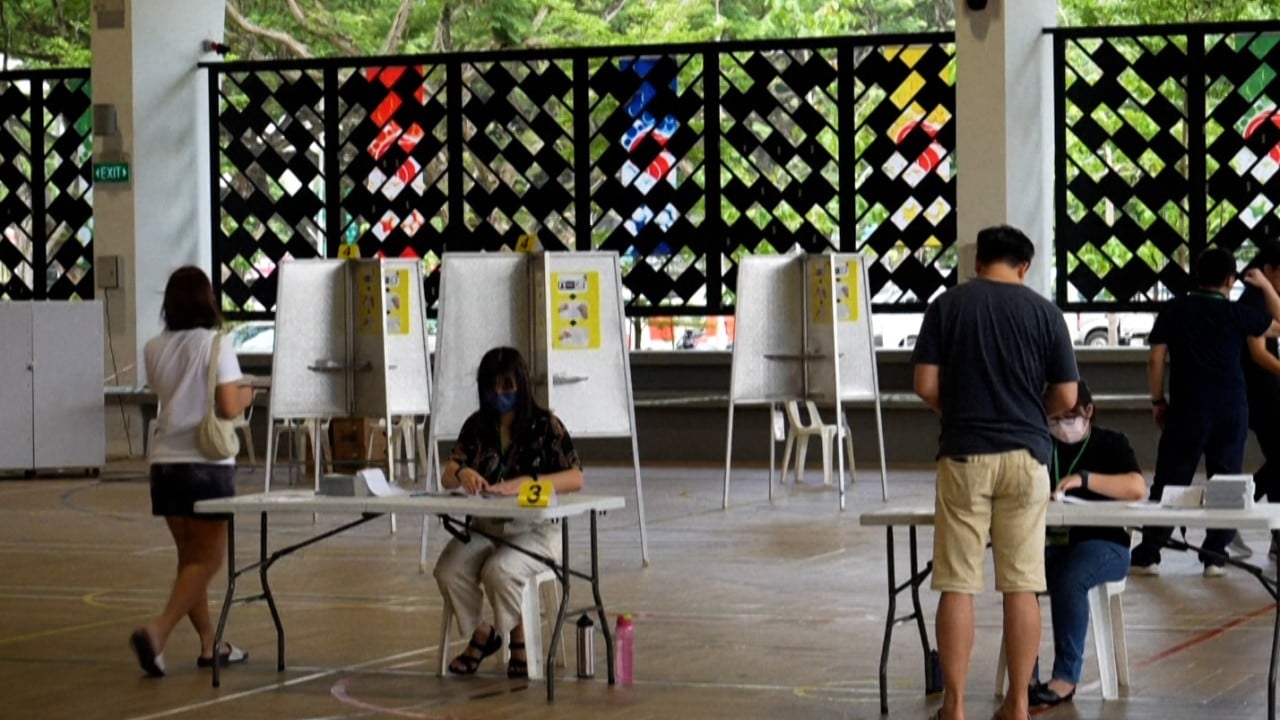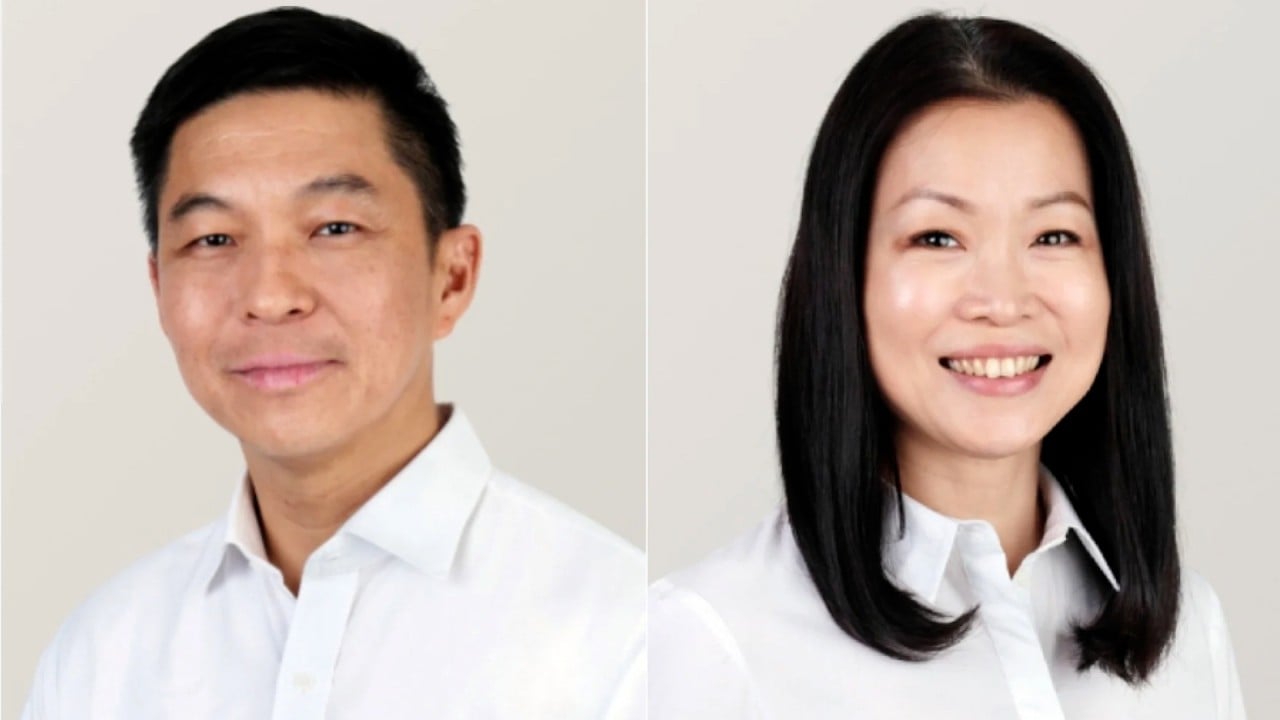
Singapore’s next president: ethnic voting theories ‘disproved’ by Tharman Shanmugaratnam’s landslide victory, analysts say
- The former PAP stalwart’s 70.4 per cent share of the vote showed that voters prioritised a candidate’s ability more than other factors
- Some observers caution that Tharman’s victory does not indicate the ruling PAP has fully recovered from its public relations nightmare
Tharman Shanmugaratnam’s landslide victory in Singapore’s presidential election has yielded insightful clues to the republic’s evolving race relations, surpassing its initial portrayal as mainly a proxy barometer of support for the ruling People’s Action Party (PAP), analysts have said.
The former PAP stalwart headed into Friday’s election with expectations that while he was the front runner, his victory margin would be cut back somewhat by his former party’s recent internal scandals and his Ceylon Tamil ethnicity in the multiracial but Chinese-majority city state.
The PAP has previously argued that Singapore is not ready for a non-Chinese prime minister, and also amended the constitution to ensure some presidential polls are reserved for candidates from minority races.
Singapore’s Tharman Shanmugaratnam elected president after landslide victory
Tharman’s 70.4 per cent vote share in a contest against two ethnic Chinese candidates foils that orthodoxy about the country still largely voting along racial lines despite its much-vaunted multi-ethnic cohesion, analysts said.
The 66-year-old’s election as Singapore’s ninth president “clearly disproves any theories that Singapore was not ready for a non-Chinese leader”, said Nydia Ngiow, the managing director of BowerGroupAsia in Singapore.
Voters showed they prioritised the ability of a candidate more than other factors, said political scientist Bilveer Singh, referring to Tharman’s sterling credentials as a former PAP minister and as one of the country’s most recognisable names overseas.
In late-night comments on Friday, Tharman said he was “truly humbled” by the extent of support from voters, and described his decisive victory as a “vote for Singapore’s future, a future of optimism and solidarity”.
Asked if his victory meant rules to reserve certain polls for minorities were no longer needed, Tharman noted that “race is never absent in politics anywhere in the world, even of an apolitical election of this case”, even though it was not the only factor.
Nonetheless, Singapore was changing and “I hope that my being elected as president is seen as another milestone in that process”, he said.
Tharman was consistently one of the PAP’s most popular figures in his 22-year stint in the party, during which he led the education and finance ministries, was made deputy prime minister and subsequently elevated to senior minister. He resigned from the government and the PAP in July to run in the presidential poll.
His popularity meant he was central to a national debate over the last decade about whether the country was ready for a non-Chinese prime minister.
After independent pollster Blackbox Research and Yahoo Singapore in 2016 released a survey that showed he was the public’s top choice to replace Prime Minister Lee Hsien Loong, Tharman came out quickly to say he was not interested in the job.
Commentators had suggested this position at that time was a tacit acceptance of the PAP orthodoxy that a person of Chinese ethnicity was most likely to have the confidence of a majority of the population.
The republic has only had Chinese prime ministers: the late Lee Kuan Yew, Goh Chok Tong and the current leader, Lee Kuan Yew’s eldest son.
Five of the country’s eight presidents thus far, including incumbent Halimah Yacob, were from minority ethnic groups – though they were either appointed or won walkover contests.
Tharman, victor of the country’s first contested presidential poll in 12 years, will be the first president from a minority group elected by universal suffrage.
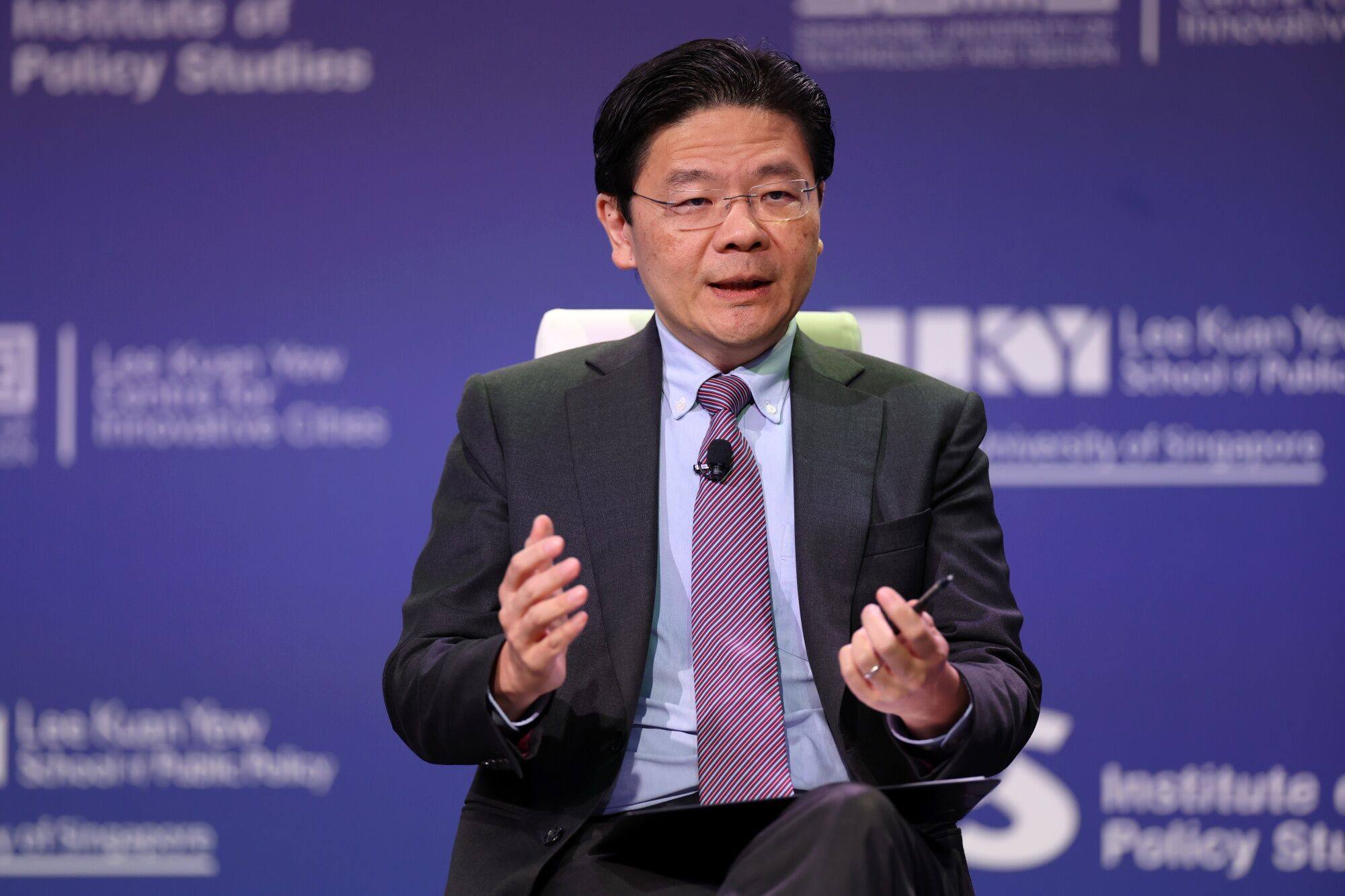
In recent years, PAP leaders such as the country’s leader-in-waiting, Deputy Prime Minister Lawrence Wong, have said they would welcome a non-Chinese leader who emerged on his or her own merit.
During the presidential campaign, Tharman echoed this view, saying the city was “ready any time” for a non-Chinese prime minister.
On Friday night and subsequently on Saturday morning, his broad appeal was evident as large crowds – made up of all races – greeted him jubilantly as he criss-crossed the island to thank supporters.
Some bore pineapples, his campaign symbol. As he arrived on Friday night at his former ward of Taman Jurong, a largely working-class suburb in the island’s western region, many chanted “Ong Lai!” (pineapple in Hokkien) and “Huat Ah!” (a Hokkien expression of prosperity).
Andrew Leong, a Taman Jurong resident, told This Week in Asia he believed Tharman’s strong mandate was a result of his long track record as a national and community leader.
“It’s not like he just came up in the last weeks or months,” he said.
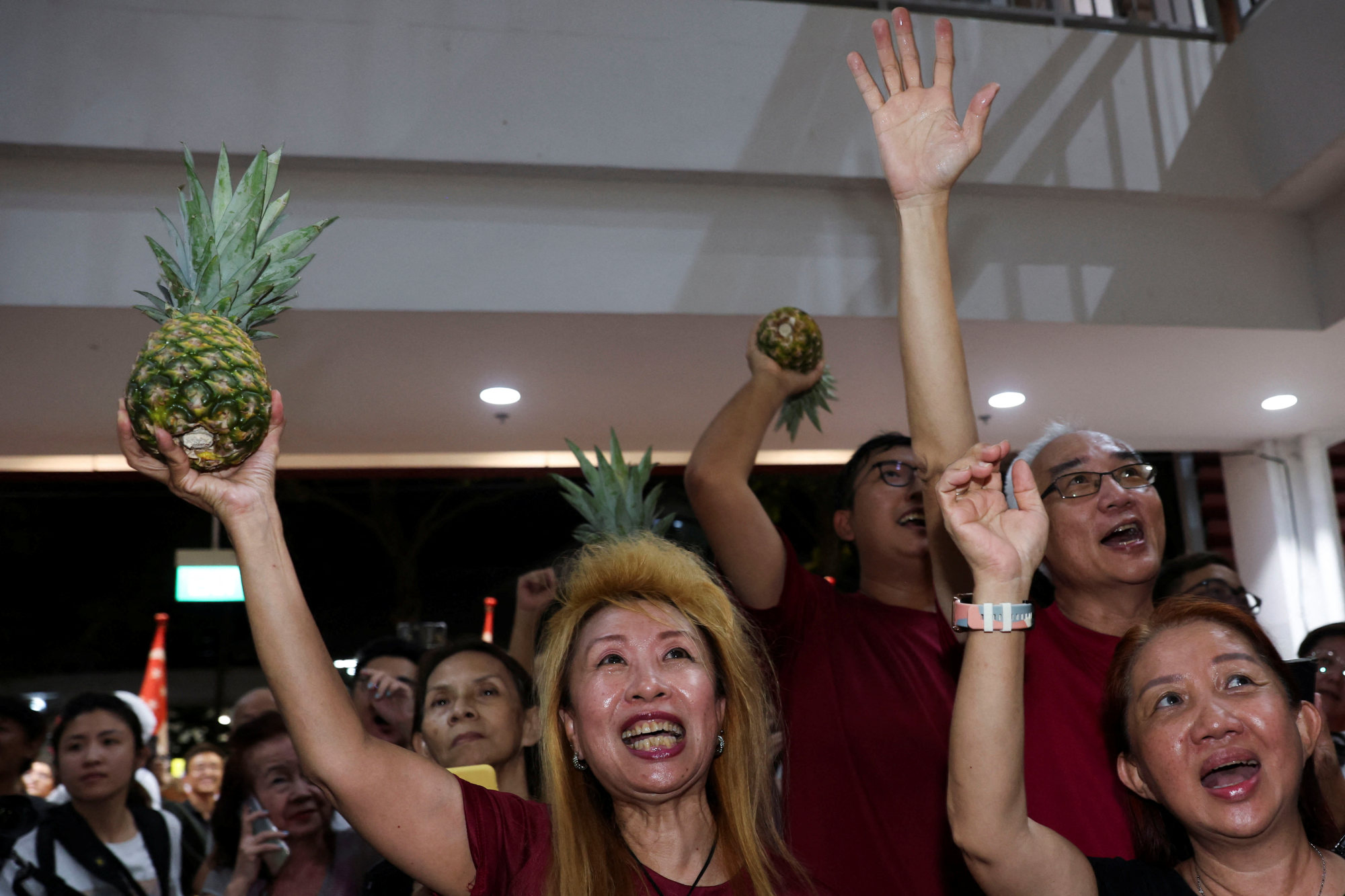
‘Gamble’ paid off
Postmortems by commentators on Saturday have meanwhile also focused on the political implications of the presidential election.
The presidency is a non-partisan position with custodial powers over the nation’s fiscal reserves and the appointment of key public officials.
Still, given the PAP’s recent spate of internal scandals – including the arrest of a minister in a corruption investigation – as well as Tharman’s past affiliation with the party, the contest had been pitched as a proxy test of support of Prime Minister Lee’s administration.
The party’s internal troubles have come amid mounting speculation that Lee, 71, is planning to soon hand over power to Wong after a previous delay.
“This is an amazing victory in the context of crisis in the PAP, crisis in the economy, crisis in the region, crisis in the world, and we have got an amazing political stabiliser at home today,” said Singh from the National University of Singapore.
Other analysts cautioned against over-reading the results as indicative of the party having fully recovered from its public relations nightmare.
Terence Lee, an Australia-based Singapore politics commentator, said he believed Tharman’s victory had to be viewed as a product of the politician’s own track record and campaign.
Tharman campaigned on a platform that pledged to use the presidency’s powers of moral suasion to entrench a culture of “Respect For All”.
His opponents, Ng Kok Song and Tan Kin Lian, both pitched themselves as candidates independent of the PAP – arguing that quality was vital for a president to effectively carry out his custodial duties.
Tharman dismissed this argument, saying it was simplistic to reduce the contest to candidates’ past affiliations.
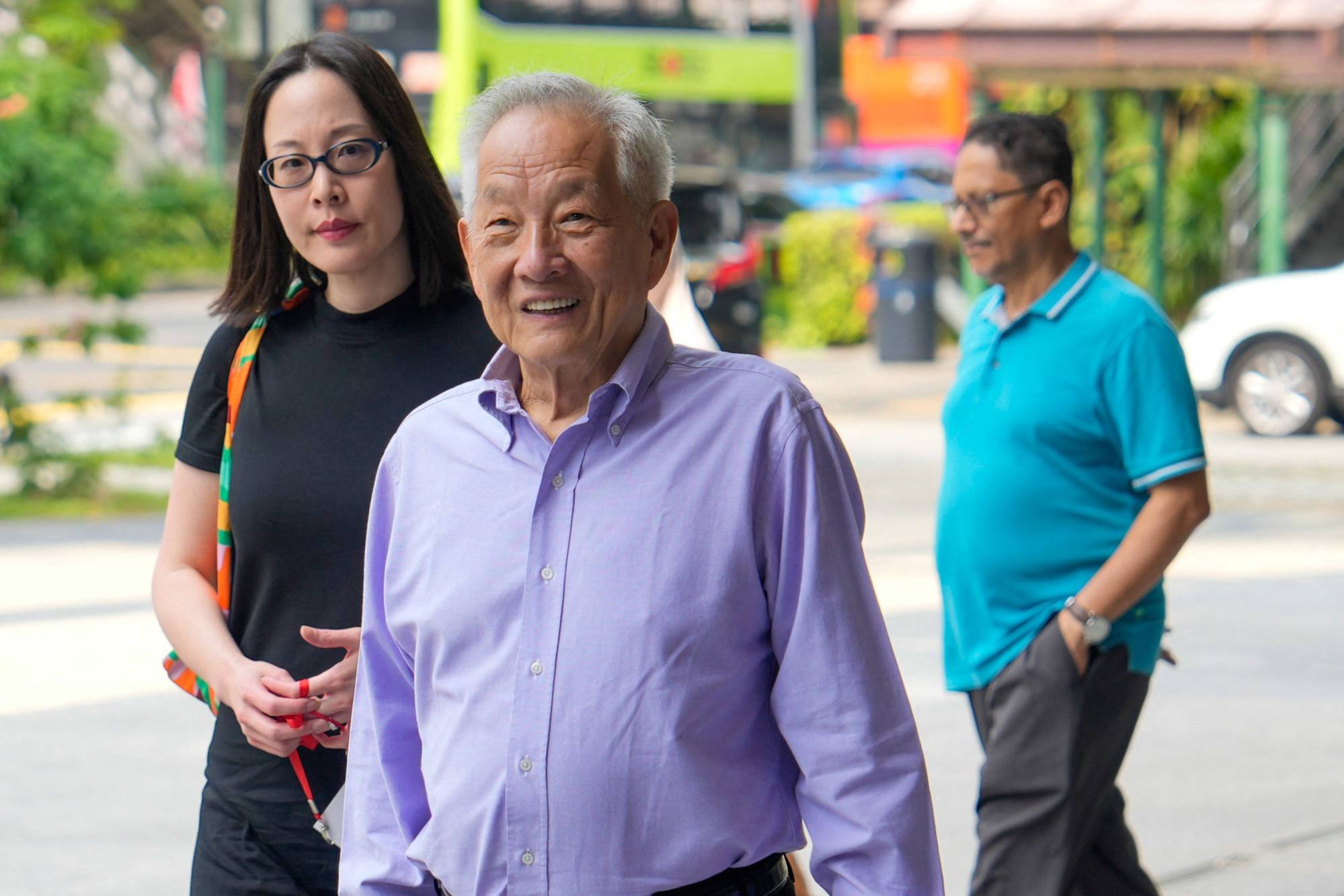
Ng, a former chief investment officer of the state investor GIC, won 15.72 per cent of the vote. Tan, a former chief executive officer of the state-linked insurer NTUC Income, won 13.88 per cent of the vote despite having earlier secured endorsements from a handful of opposition politicians. Ninety-three per cent of 2.7 million voters cast their votes.
Ngiow of BowerGroupAsia said the PAP would be satisfied with the “gamble” of allowing its most popular MP run for the presidency paying off.
Now, its attention would turn to a general election due by 2025 that it would have to fight without one of its heavyweights, she said.
That vote could be a watershed for the PAP as the power transition between Lee and Wong will take place before or after that contest.
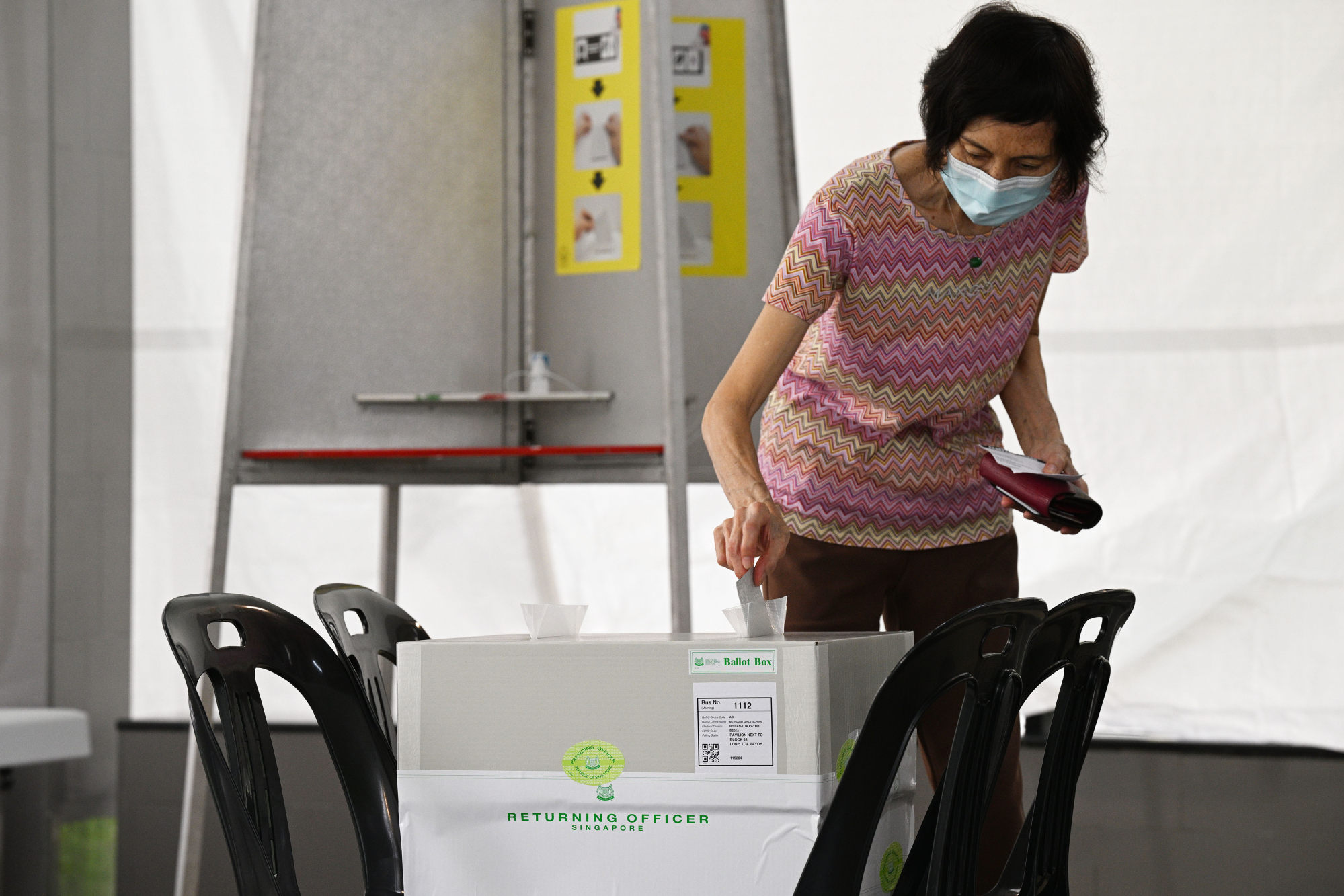
Tharman said on Saturday that his presidency would coincide with the “very important” transition and that he hoped his relationship with future prime minister Wong would be a “relationship of trust and mutual respect”.
Ngiow said it was unlikely the general election would be brought forward following the favourable presidential poll outcome.
“It doesn’t seem likely that the PAP can ride off the wave of Tharman’s popularity and benefit from an earlier general election,” she said.



